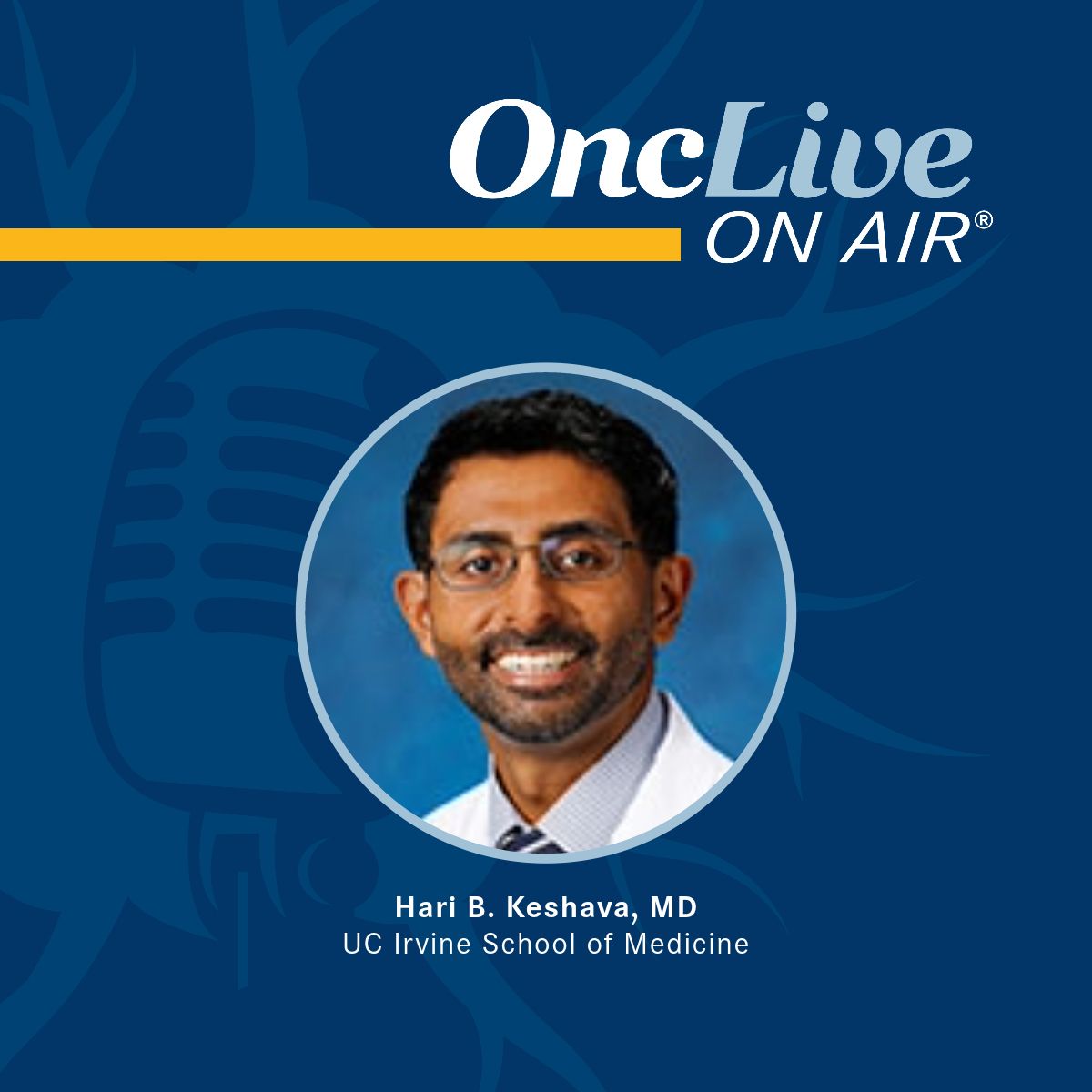News
Article
Perioperative Pembrolizumab Wins Approval in Europe for Resectable NSCLC at High Risk of Recurrence
Author(s):
The European Commission has approved neoadjuvant pembrolizumab plus chemotherapy, followed by adjuvant pembrolizumab, for high-risk, resectable NSCLC.
Solange Peters, MD, PhD

The European Commission has approved neoadjuvant pembrolizumab (Keytruda) in combination with platinum-containing chemotherapy, followed by adjuvant pembrolizumab monotherapy, for the treatment of adult patients with resectable non–small cell lung cancer (NSCLC) at high risk of recurrence.1
The regulatory decision was supported by data from the phase 3 KEYNOTE-671 trial (NCT03425643), which demonstrated that at a median follow-up of 29.8 months (range, 0.4-62.0), the combination of pembrolizumab and chemotherapy in the neoadjuvant setting, followed by adjuvant pembrolizumab, reduced the risk of death by 28% compared with neoadjuvant placebo plus chemotherapy, followed by adjuvant placebo, in patients with resectable stage II, IIIA, or IIIB NSCLC (HR, 0.72; 95% CI, 0.56-0.93; 1-sided P = .00517). Patients in the pembrolizumab arm experienced a median overall survival (OS) that was not reached (NR; 95% CI, NR-NR) compared with 52.4 months (95% CI, 45.7-NR) for those in the placebo arm.
Additionally, the pembrolizumab regimen elicited a median event-free survival (EFS) of 47.2 months (95% CI, 32.9-NR) vs 18.3 months (95% CI, 14.8-22.1) with the placebo regimen (HR, 0.59; 95% CI, 0.48-0.72).
“Despite the clinical advances for patients with metastatic lung cancer, lung cancer continues to be the leading cause of cancer death in Europe, reinforcing the need to treat these patients in earlier stages of their disease, where we may have the most impact,” Solange Peters, MD, PhD, a full professor and chair of the medical oncology and thoracic malignancies department at Centre Hospitalier Universitaire Vaudois in Lausanne, Switzerland, stated in a news release. “The approval of this [pembrolizumab]-based regimen is an important milestone for patients diagnosed with resectable NSCLC at high risk of recurrence, regardless of PD-L1 expression, providing a new option for these patients that has shown, through the results of the phase 3 KEYNOTE-671 trial, the potential to help extend their lives.”
In October 2023, the FDA approved pembrolizumab in combination with platinum-containing chemotherapy as neoadjuvant treatment, and with continuation of pembrolizumab monotherapy as post-surgical adjuvant treatment, for patients with resectable NSCLC. That decision was also based on data from KEYNOTE-671.2
The randomized, double-blind, phase 3 trial enrolled patients at least 18 years of age with resectable stage II, IIIA or IIIB (T3-4N2) NSCLC per the eight edition of the American Joint Committee on Cancer Staging Manual.1
Patients needed to have previously untreated and pathologically confirmed disease; an ECOG performance status of 0 or 1; and adequate organ function.3
Key exclusion criteria included NSCLC involving the superior sulcus, large-cell neuro-endocrine cancer, or a sarcomatoid tumor; a history of or current pneumonitis or interstitial lung disease (ILD) requiring steroids; prior allogenic tissue or solid organ transplant; and prior treatment with an anti–PD-1, –PD-L1, or –PD-L2 agent, or an agent directed to another co-inhibitory T-cell receptor.
The study enrolled 797 patients who were randomly assigned in a 1:1 fashion to receive neoadjuvant chemotherapy in combination with perioperative pembrolizumab or placebo. The chemotherapy regimen in both arms consisted of cisplatin at 75 mg/m2 on day 1 of each cycle plus either gemcitabine at 1000 mg/m2 on days 1 and 8 of each cycle or pemetrexed at 500 mg/m2 on day 1 of each cycle for up to 4 cycles prior to surgery. In the experimental arm, patients received 200 mg of neoadjuvant pembrolizumab once every 3 weeks for 4 cycles, then within 4 to 12 weeks following surgery, the agent was given at 200 mg once every 3 weeks for up to 13 cycles. Patients in the control arm received a matching placebo for pembrolizumab following the same schedule.1
Investigator-assessed EFS per RECIST v1.1 criteria and OS served as the trial’s dual primary end points.3 Key secondary end points included pathologic complete response and major pathological response.
Regarding safety, adverse effects (AEs) observed in the experimental arm during KEYNOTE-671 were consistent with findings from other studies evaluating pembrolizumab in combination with chemotherapy.1 The most common AEs reported in at least 20% of patients receiving pembrolizumab plus chemotherapy (n = 396) were fatigue/asthenia, nausea, constipation, diarrhea, decreased appetite, rash, vomiting, cough, dyspnea, pyrexia, alopecia, peripheral neuropathy, mucosal inflammation, stomatitis, headache, weight loss, abdominal pain, arthralgia, myalgia, insomnia, palmar-plantar erythrodysesthesia, urinary tract infection, and hypothyroidism. Serious AEs were reported in 34% of patients, and fatal AEs occurred in 1.3%, including death due to unknown cause (0.8%), sepsis (0.3%), and immune-mediated lung disease (0.3%).
Notably, 6% of patients in the experimental arm did not receive surgery due to AEs during neoadjuvant treatment. ILD (1%) was the most common AE that prevented patients from proceeding to surgery.
Additionally, 14% of patients who were administered adjuvant pembrolizumab (n = 290) experienced serious AEs. The most common serious AE was pneumonia 3.4%, and 1 fatal adverse reaction was reported (pulmonary hemorrhage).
References
- European Commission approves Merck’s Keytruda (pembrolizumab) plus chemotherapy as neoadjuvant treatment, then continued as monotherapy as adjuvant treatment, for resectable non-small cell lung cancer (NSCLC) at high risk of recurrence in adults. News release. Merck. March 28, 2024. Accessed March 28, 2024. https://www.merck.com/news/european-commission-approves-mercks-keytruda-pembrolizumab-plus-chemotherapy-as-neoadjuvant-treatment-then-continued-as-monotherapy-as-adjuvant-treatment-for-resectable-non-small-ce/
- FDA approves neoadjuvant/ adjuvant pembrolizumab for resectable non-small cell lung cancer. FDA. October 16, 2023. Accessed March 28, 2024. https://www.fda.gov/drugs/resources-information-approved-drugs/fda-approves-neoadjuvant-adjuvant-pembrolizumab-resectable-non-small-cell-lung-cancer
- Efficacy and safety of pembrolizumab (MK-3475) with platinum doublet chemotherapy as neoadjuvant/adjuvant therapy for participants with resectable stage II, IIIA, and resectable IIIB (T3-4N2) non-small cell lung cancer (MK-3475-671/KEYNOTE-671). ClinicalTrials.gov. Updated November 13, 2023. Accessed March 28, 2024. https://clinicaltrials.gov/study/NCT03425643









